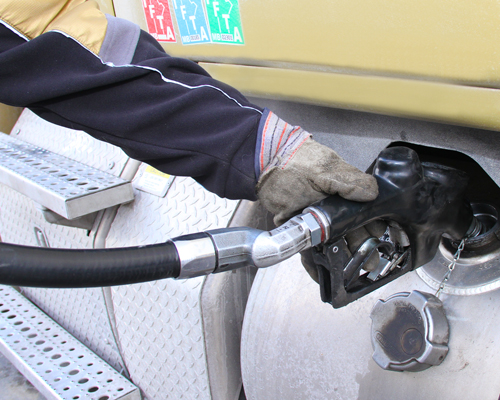 I like bananas. In fact, they are my favorite food. But, sadly, bananas don’t grow in Winnipeg. Good news is that we have truck transportation to move products like bananas all over our continent.
I like bananas. In fact, they are my favorite food. But, sadly, bananas don’t grow in Winnipeg. Good news is that we have truck transportation to move products like bananas all over our continent.
I think we all know that energy has a huge impact on our economy. The ‘price per barrel’ of oil is regularly reported in the news. When there is a spike in the price, the news media seem to go into frenzy. Interestingly, most of us have never bought a barrel of oil. Sure, we know it is important stuff but, it’s pretty far removed from us. Right?
Actually, energy affects every one of us in more ways than just the price of a litre of fuel for our car. Goods on the shelf at our favorite store and the food in our favorite restaurant all have an increasing component of energy inside them. Maybe the energy is in the farm tractor. Maybe it’s in running the machine that melts plastic into the shape of an iPod. In pretty much all cases, there is energy used in transporting those goods.
At Bison, our segment of transportation moves goods to manufacturers, distributers and ultimately to stores. For us, energy input is mostly in the form of diesel fuel. That fuel is the number one input cost to our business. Depending on the type of trucking, it can be between 25% and 50% of the total cost. But, the cost itself is not the issue. Many industries have one or two very large input costs that they build into the price of their product. The challenge is that fuel tends to be much more volatile than say labor costs or machine costs.
Fuel prices in Canada can change based on many factors including news in far away places like the Middle East. And, when fuel dramatically increases in price, a couple of things can happen. First, the trucking company can pay the fuel bill at their own cost. Second, if the system is working properly, the increased cost can be passed along to the company who wants to move the goods in the first place. For the system to be sustainable, the cost must eventually be passed along to you, the consumer. If the consumer cannot or will not pay, everyone else will stop doing their part. When fuel prices go up, prices for food and clothing will naturally follow.

But why do fuel prices go up? Does it really cost more this week to produce diesel than it did last week? In some cases it does. But, we know that the bigger reason for price change is supply and demand – either current or forecasted. Within the last couple of years, we have seen diesel production interruptions in Alberta. This has caused diesel prices in Alberta to rise by 7% to 10% against prices in other parts of Canada. Today, some of the most expensive fuel in Canada is sold in Calgary. Think that doesn’t make sense? Well, it does seem hard to understand. But, there is a complex system of production, storage, volume commitment and transportation that controls who gets fuel, when they get it and for what price. Commercial and retail fuel customers are often not the winners when there is turmoil.
We also know that today’s diesel product is not just linked to the supply of oil. There can be plenty of oil but there is very limited ‘refining’ capability. The refinery is the bottleneck, not the supply of oil. Storage of refined fuel is so minimal in Canada that any shutdown in refining quickly turns into significant fuel shortages and pricing spikes. Think about what would happen if a refinery problem lasted for a little longer. How would that affect the availability of food at your favorite restaurant or the supply of bananas to the store? Maybe there are alternate plans for our economy to be sustained? If there are, maybe we need to hear them.
If there is ever a spot for our regulators to be asking questions, it’s ones like this: “What happens if the private producers of energy in Canada cannot or will not provide adequate supply of fuel to Canadians at a fair price?” I’m curious.
Please comment below.